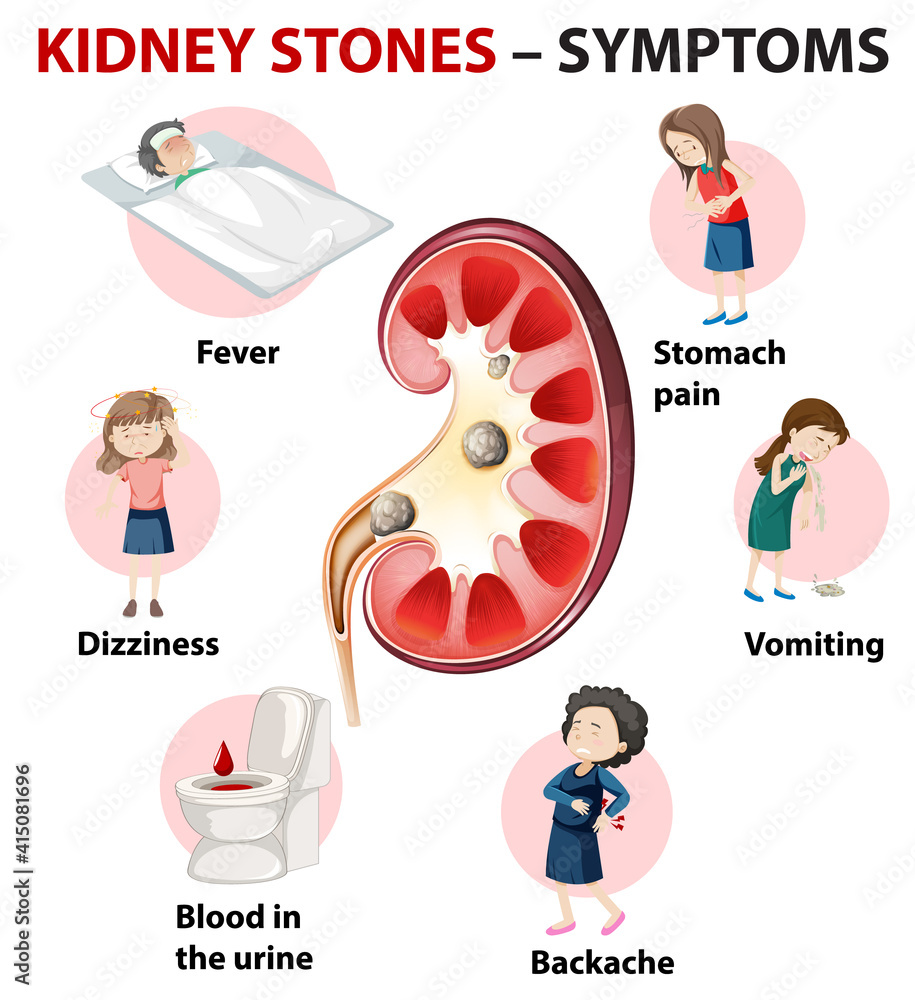Kidney stones can manifest a range of symptoms, depending on their size, location, and whether they're causing a blockage or irritation in the urinary tract. Here are some common symptoms associated with kidney stones:
Intense Pain: One of the hallmark symptoms of kidney stones is severe pain, often described as sharp and stabbing. The pain typically occurs in the side or back, below the ribs, and can radiate to the lower abdomen and groin as the stone moves through the urinary tract. The intensity of the pain may fluctuate as the stone shifts position.
Painful Urination: People with kidney stones may experience discomfort or a burning sensation during urination. This symptom can occur as the stone irritates the lining of the urinary tract or causes inflammation.
Blood in the Urine (Hematuria): Kidney stones can cause microscopic or visible blood in the urine, giving it a pink, red, or brownish hue. Hematuria occurs when the stone scrapes or damages the walls of the urinary tract, leading to bleeding.
Frequent Urination: Some individuals with kidney stones may feel the urge to urinate more frequently than usual, even if they pass only small amounts of urine. This symptom can result from irritation of the bladder or urinary urgency caused by the presence of the stone.
Urinary Urgency: Kidney stones can cause a sudden and intense urge to urinate, even when the bladder isn't full. This symptom may be accompanied by difficulty holding urine or a feeling of pressure in the bladder.
Nausea and Vomiting: Severe pain from kidney stones can trigger nausea and vomiting in some individuals. These symptoms may occur as a physiological response to intense pain or as a result of irritation of the gastrointestinal tract.
Fever and Chills: In some cases, kidney stones can lead to urinary tract infections (UTIs) or kidney infections (pyelonephritis), which may cause fever, chills, and general malaise. These symptoms typically indicate a more serious complication and require prompt medical attention.
It's important to note that not everyone with kidney stones will experience all of these symptoms, and the severity of symptoms can vary widely from person to person. Additionally, some individuals may have kidney stones without experiencing any noticeable symptoms, especially if the stones are small and pass through the urinary tract without causing obstruction or irritation.
If you experience symptoms suggestive of kidney stones, such as severe pain, blood in the urine, or persistent urinary discomfort, it's essential to seek medical evaluation and treatment promptly. Early diagnosis and intervention can help prevent complications and improve outcomes for individuals with kidney stones.





Comments